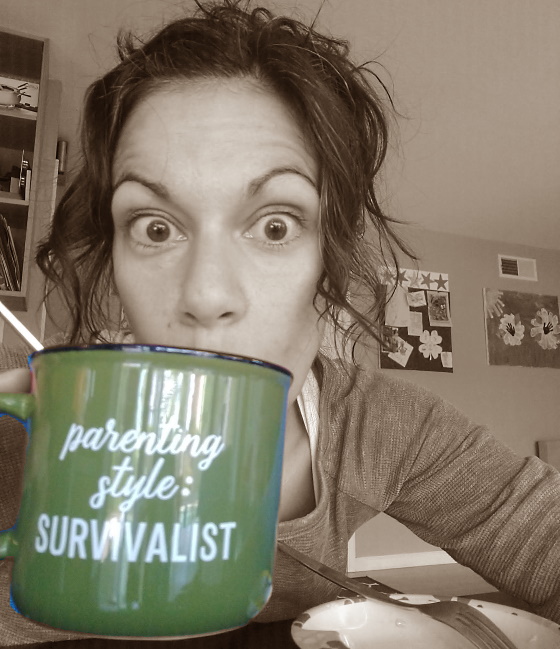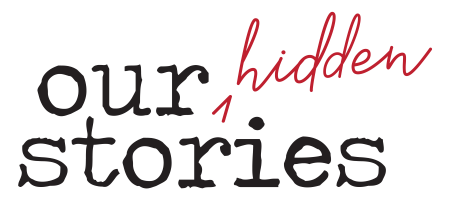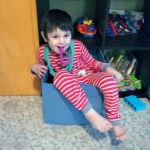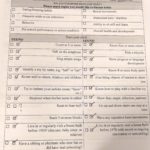
What kind of friend am I? I am always busier these days. I have children, so I can’t do anything for myself during “normal” hours. I’ve moved three time zones from one set of friends, two from the next, and I somehow need to make new friends where I live now in the middle of a pandemic. I don’t want to be a bad friend, but the deck is stacked pretty high. I am busy, stressed out, my life consists of talking about depressing moments or things that most people don’t do or think about daily; it’s a lot of poop talk some days. Most people don’t have a child that can’t respond to them – compared to won’t respond, because as a parent to two children, my oldest thinks I don’t know that she can hear when we call her to turn the television off as she purposely ignores us.
Many parents of special needs children tend to have a more difficult time with friendships. Friendship is a two-way street. It is easy to assume that those who can’t relate to having a child, like ours, will not want to be in real friendships, instead of realizing we don’t always make the best friends.
Friends lacking similar experiences don’t always know how to cope on their end.
When we got our diagnosis, I had a friend so desperate to feel close to me that she shared that she understood the devastation I felt because she too knew a loss like ours. For a moment, I questioned, did she miscarry or have a diagnosis she never told me? She began to share the devastation of finding out she was having another child of the same sex during her last and final pregnancy. I had to brace myself because it is easy to discount someone else when they say something that feels so far from where you are at that moment. I wanted to ask her how she thought this was a comparison. But I didn’t need to. Hearing her emotion could have gotten me more upset – and might have in my younger years, to be fair – but it made me realize how lucky I am to have a friend who wanted to know what I am feeling at that very moment. She shared with me her most devastating experience.
She knew it wasn’t a competition, and that’s the best part about having a great friend. They aren’t trying to one-up you. But she did want to understand, and for that, I let her in the best way I could. Except, for years, I still think about that conversation. I wish I had said to her, “it’s okay, you don’t have to understand, you just have to love me,” to take some pressure off of her.
[…] how do we foster new friendships if we can’t truly invest in them […]
Friends lacking similar experiences don’t always know how to cope on their end, then they want to be there for you, but how? Heck, I still don’t always know what I need. They want to be great friends, especially in our moments of need, but can quickly begin to feel like they can’t relate without being able to connect. In return, they wonder how can they be good friends without that ability? That is our time to stand up and tell them they don’t need to understand to be good friends. They still need us to be a good friend to them, after all.
The lonely life of a special needs parent is just that at times. After diagnosis, we tend to make friends with people who understand us, other special needs parents, who tend to be just as busy, exhausted, and overextended as us. The most challenging part, how do we foster new friendships if we can’t truly invest in them since we are so busy keeping our children safe, entertained, and loved? I have not quite figured that out yet.
I never lie about my situation, and maybe that intimidates people, or perhaps that might be what attracts them. When I started to make friends after my sons’ diagnosis, I flat out did not want to be in the playdate scene. But, if I met people who realized our children are the same age, I would cringe if they would say, “We should have a playdate!” I began to picture the chaos and possible end to another friend that could have been, and then I have to tell them all about the reality of what my home life truly is.
Relationships take time, energy, and mutual interests.
The days of taking my kids on playdates were long gone, even before the pandemic. For years my youngest would sit patiently in his stroller or quietly sitting on my lap from lack of strength. Now he’s always in motion. He tends to terrify anyone who is not comfortable with his dangerously mobile “style” of movement, making it difficult to ask people over for a playdate. The idea of going to another person’s house isn’t just terrifying but downright dangerous as my son lacks the mastery of movement around our own home. How can he in new surroundings? But let’s say for a moment I can get him to stay comfortable in his stroller, and strike up a conversation with another person at the playground, then what?! Relationships take time, energy, and mutual interests.
Friendship is a two-way street that many of us cannot do a great job at times, which is why we must nurture those we have and be okay to walk away from those that don’t make sense anymore. It takes a lot of effort on my part at times, others I am thankful for, because I have people who know I love them regardless of telling them daily. But I am lonely. I miss going out for a drink, walking through town, or just the excitement I would have to know I was going to see my friend at the pickup line as we waited for our kids.
Right now, being lonely is a new level. For a bit, anyone who sheltered in place had the chance to get a peek into the lives we live, if they realize it or not. But for them, it is temporary. For us, it’s not so easy.



